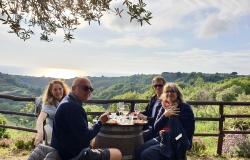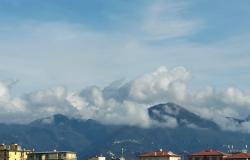Wonders of Italy: Palazzo Te in Mantua
ITA:

Use player to listen to Italian version

Paywall Content
Commissioned by the Duke of Mantua Federico II di Gonzaga for his lover Isabella Boschetti, Palazzo Te in Mantua is a masterpiece of Mannerism (late Renaissance style) by architect and painter Giulio Romano.
Built between 1524 and 1534, Palazzo Te was a magnificent suburban villa intended for otium (leisure time) and parties of the Gonzaga court, rulers of Mantua.
The name Palazzo Te is due to the fact that the building was erected on an islet called Tejeto, perhaps from the Latin tilietum, a place with linden trees; it was then shortened to ‘te.’ This islet surrounded by the Mincio river housed, during the 15th century, the stables of the Gonzaga family. Their main residence was the famous Palazzo Ducale, another must-see of Mantua, in the historic city center.
The vast building has a square courtyard layout inspired by a Roman domus, with four entrances on all four sides. It looks like a low and massive block.
The Sala di Amore e Psiche (Room of Cupid and Psyche) is one of the most sumptuous rooms in the palace. It contains a cycle of frescoes representing the story of Cupid and Psyche, which recalls Federico II's private affairs, namely his forbidden love for Isabella Boschetti, and the conflict with his mother Isabella d’Este, who opposed that relationship, as Venus opposes that between Eros and Psyche. The room was used as a dining hall.
The most impressive room in Palazzo Te is the frescoed Sala dei Giganti (Room of the Giants). It is the largest room and has a square layout surmounted by a domed ceiling. In the dome Zeus is depicted defeating the Giants with a beam of lightning; the Giants occupy the walls starting from the floor, while they are trying to ascend to Olympus. What is most striking is the fact that the painting completely covers all available surfaces: a single fresco that places the viewer at the center of the event narrated in the painting, making the viewer feel as if he/she were part of the group of the Giants, a victim of Zeus’ wrath.
Part of Palazzo Te houses today the Civic Museum, with some permanent collections that include coins, medals and weights belonging to the Gonzaga.
Commissionato dal duca di Mantova Federico II di Gonzaga per la sua amante Isabella Boschetti, Palazzo Te a Mantova è un capolavoro del manierismo (stile tardo rinascimentale) dell'architetto e pittore Giulio Romano.
Costruito tra il 1524 e il 1534, Palazzo Te era una magnifica villa suburbana destinata all’otium, cioè al tempo libero e alle feste della corte dei Gonzaga, signori di Mantova.
Il nome Palazzo Te è dovuto al fatto che l'edificio fu eretto su un isolotto chiam











